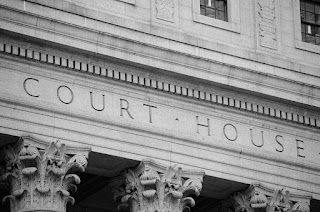A paralegal is a professional in legal sciences that performs procedures autonomously or semi autonomously. They also work in support or assist professionals related to the legal area of a consultative or judicial litigation nature. Its labor market is broad, including consultancies, companies that have legal departments or that perform legislation compliance activities such as: environmental, labor, controlled products, product registration, trademarks and patents, tax, bidding, among others. Legal offices and public bodies also have many paralegals in support activities although they do not yet use the correct name of the profession[citation needed.
In United States in 1967, the American Bar Association (ABA) endorsed the concept of the paralegal and, in 1968, established its first committee on legal assistants.
The exact nature of their work and limitations that the law places on the tasks they are allowed to undertake vary between nations and jurisdictions. Paralegals generally are not allowed to offer legal services independently in most jurisdictions. In some jurisdictions, paralegals can conduct their own business and are called paralegals, providing services such as settlements, court filings, legal research and other auxiliary legal services; these tasks often have instructions from a solicitor attached.
In the United States, a paralegal is protected from some forms of professional liability under the theory that paralegals are working as an enhancement of an attorney, who takes ultimate responsibility for the supervision of the paralegal's work and work product. Paralegals often have taken a prescribed series of courses in law and legal processes. Paralegals may analyze and summarize depositions, prepare and answer interrogatories, draft procedural motions and other routine briefs, perform legal research and analysis, draft research memos, and perform case and project management. Paralegals often handle drafting much of the paperwork in probate cases, divorce actions, bankruptcies, and investigations. Consumers of legal services are typically billed for the time paralegals spend on their cases. In the United States, they are not authorized by the government or other agency to offer legal services (including legal advice) except in Washington State in the same way as lawyers, nor are they officers of the court, nor are they usually subject to government-sanctioned or court-sanctioned rules of conduct. In some jurisdictions (Ontario, Canada, for example) paralegals are licensed and regulated the same way that lawyers are and these licensed professionals may be permitted to provide legal services to the public and appear before certain lower courts and administrative tribunals.
Read more, here.








